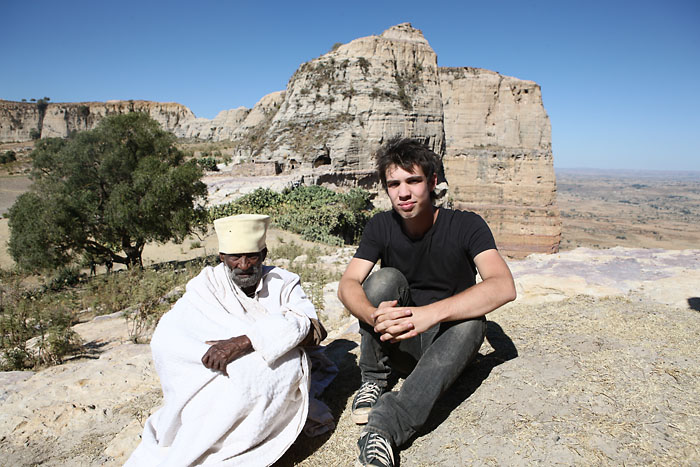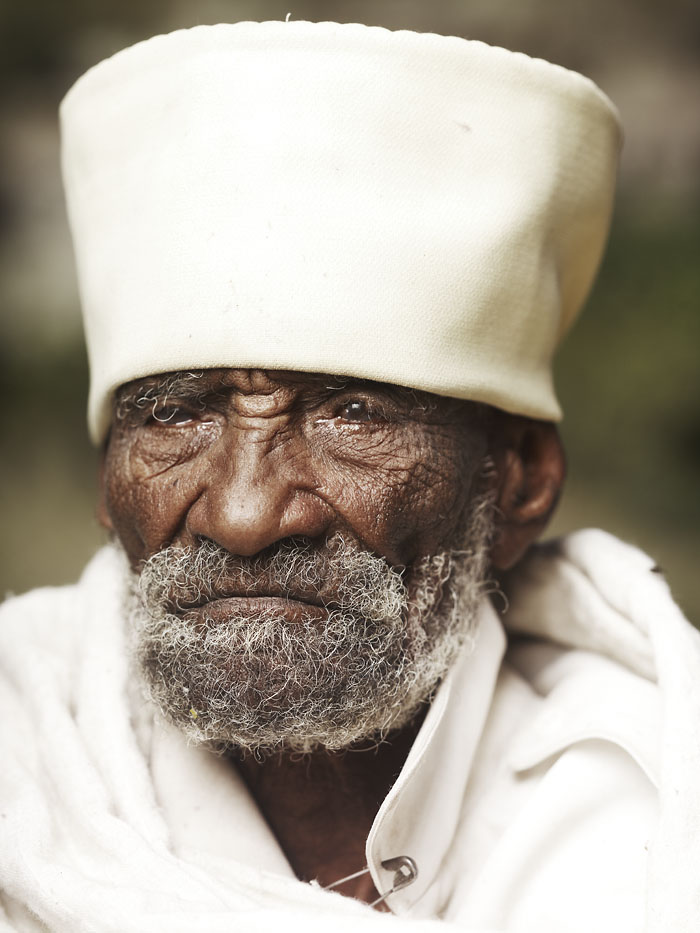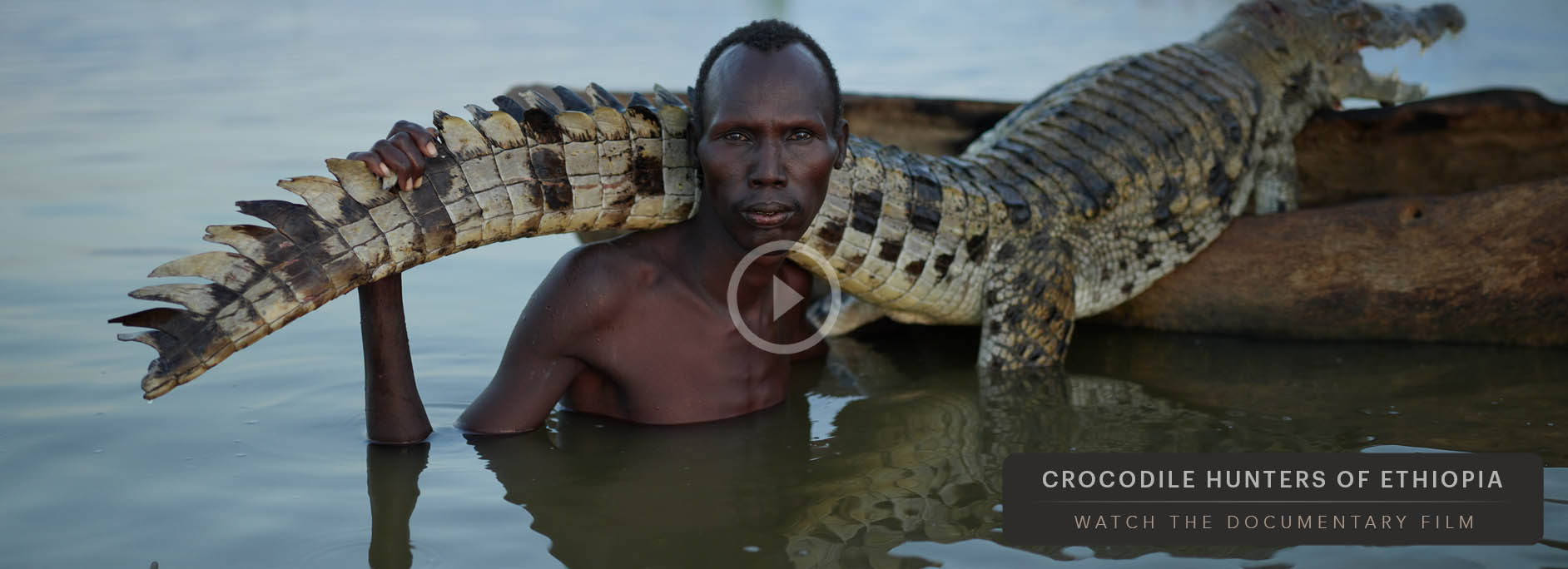
Maryam Korkor
Visiting the holy men in the North of Ethiopia was one of the more grueling photo series I have undertaken. In south of the country in the Omo Valley, we lived out of a Jeep, “hotel”, and camped but it was easy to track down the subjects to photograph… In the North there is much more of an infrastructure so it’s easier to find places to sleep and eat but actually tracking down the monks was much harder. It might involve driving three hours, walking two hours through a valley and then climbing a mountain to find a single monk in some cave; and all the way carrying the camera equipment and the flash and battery pack. I had an assistant with me and also paid local people to help me carry the equipment when needed. Some monks at the top of a mountain are the ‘real deal,’ and refuse to take your money for a photograph when you want to give it to them. Some are the things of legends and mythology of visiting a wise man at the top of a mountain.
I’d work many days on one photograph. I photographed about 10 monks in total during my 3 weeks in the North. None of the monks claim to be saints or perfect beings. They just want to commit themselves to their religion.

I met this monk at Maryam Korkor’s church. We found the church not far from the city of Megab, and had to climb the mountain for about an hour to reach the monk’s den overlooking a vast rock face and other-worldly landscape. He had a name once, but now is just referred to as the father of his church. Aba Korkor.
The locals who visit the Aba speak very highly of him- some claim he is 102 years old. Korkor himself denied these wild claims, and humbly told me he is just 101 years old. In order to move closer to me, he had some friends pick him up and brace him as his wobbly knees basically air-walked across the hard plateau outside the cave he sleeps in.
I have two translators. One is translating Tigray into Amharic, and the other Amharic into English. Occasionally, there are also bursts of prayer using Ge’ez, an ancient language known by monks who learn and interpret Christian bibles. Christianity reached Ethiopia in the forth and fifth century, so there’s a long Christian tradition in the area.
Joey- In Ethiopia, the life expectancy for a male is 45 years old.
Aba Korkor- Perhaps I will live even longer than 101, maybe 101 years more. I know a monk who is 80 years old, but he acts very old. He is not like me.
J- What is your secret?
AK- God blesses everybody in some way and for me, it has been my old age.
J- What do you eat?
AK- I eat injera, beans, anything people bring for me. I used to eat meat but now I cannot chew it. Fasting is very important for monks. I have fasted for up to 6 days in the past.
The monk bursts out briefly in prayer, 10 minutes past and I do not interupt him. My translators are respectful and do not ask any more questions. Then suddenly, Aba Korkor resumes the conversation as if nothing had happened at all.
J- Tell me about how you became a monk
AK- When I was 15 I came up to this church. I liked it here and stayed under the guidance of another monk here. I haven’t been home since. I have not left in 86 years.

Eventually, my questions take a long time to get through, and are distorted in a game of “broken telephone”. At this point, talking is kept to a minimum and the meeting simply becomes a mutual and respectful exchange of handshakes and smiles. No more questions are asked. The monk asks about me and why I came to visit. He is interested in the outside world but does not seem to have a vast knowledge of it. I ask him about the tribes in the south of the country but he has never heard of them. The only knowledge he seeks is much more personal, and his path in life. After spending some time, he thanks me for visiting and wishes us well on the rest of our journey.
View the complete series of monks here.
JL


ADD A COMMENT (1)
Joseph Parry // May 15, 2015 18:34
Thank you for this Joey, really wonderful series. Amazing to get a glimpse of what I hope to do myself one day. Bless you.
Your comment has been posted